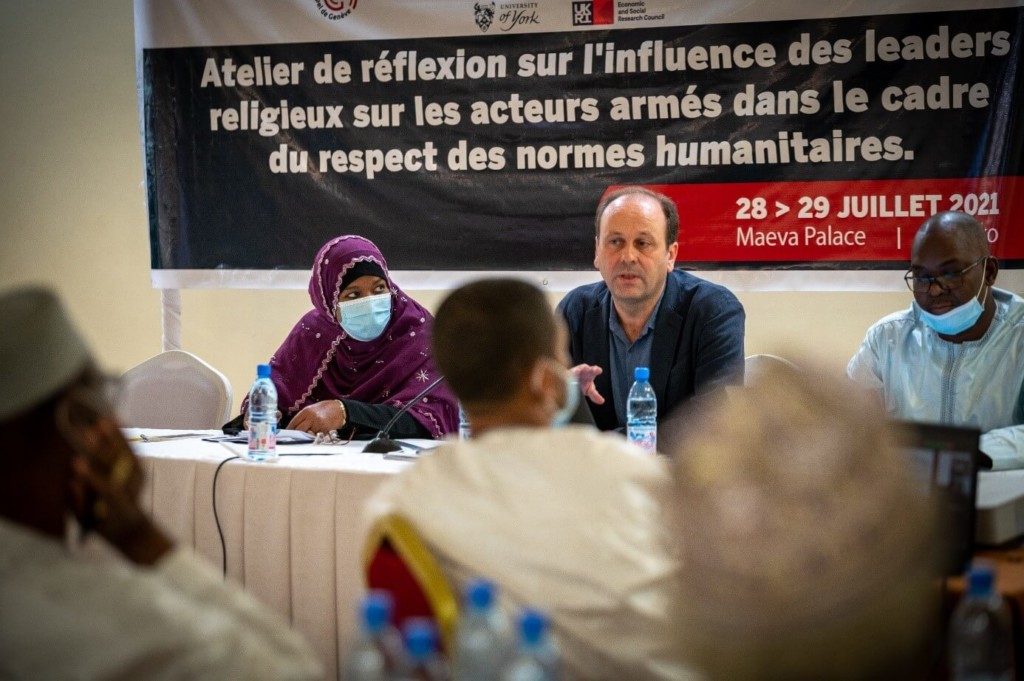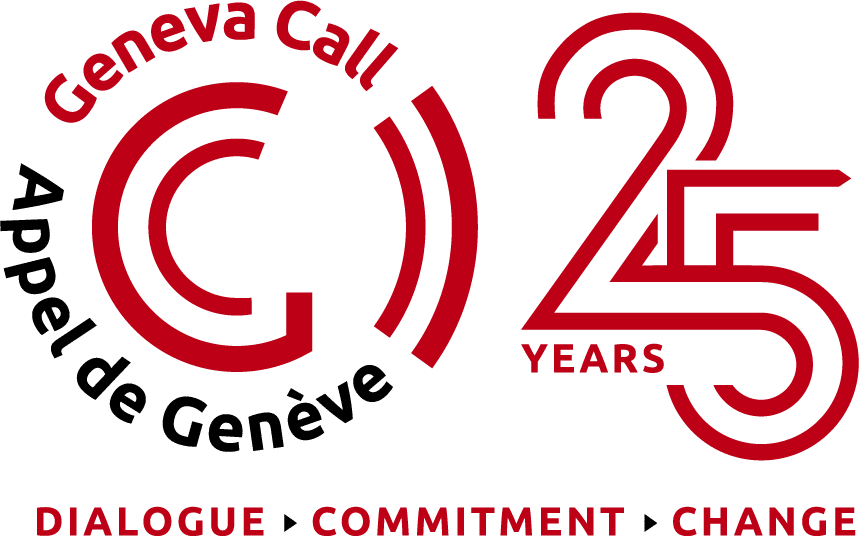
Perceptions of international humanitarian law by armed non-State actors: key findings presented in Mali
17 août 2021
From July 25th to July 29th 2021, Pascal Bongard, Senior Research Coordinator at Geneva Call and author of the case-study on the practice and interpretation of core humanitarian norms by the Mouvement National de Libération de l’Azawad (MNLA), presented key findings of the study to the humanitarian community and other stakeholders in Bamako.

This study, the first of its kind, is part of a major research project which aims at enhancing strategies of engagement with armed non-state actors (ANSAs) to promote their compliance with international humanitarian law (IHL). Funded by UK Research and Innovation, the project is led by the Geneva Academy of International Humanitarian Law and Human Rights, in collaboration with Geneva Call and the American University in Cairo, with the support of Norwegian Refugee Council (NRC) and Diakonia International Humanitarian Law Centre.
Three dissemination sessions of the MNLA case-study took place. At the first one, the findings were shared with the members of the Mali Protection Cluster, led by the UNHCR. About 45 representatives of UN agencies and NGOs attended. During the briefing, moderated by NRC, Mr. Bongard stressed how a sound understanding of ANSAs motives, structure, and sources of influence is essential for effective engagement. Several participants acknowledged that ANSAs’ internal policies and commitments to respect IHL rules should be more utilized by humanitarian actors to inform their access negotiations and hold ANSA accountable for their actions, with regards to their conduct of hostilities, treatment of detainees or displaced persons.
“In that sense, the case-study on MNLA provides a unique insight on how this ANSA has strived to regulate its armed struggle in accordance with IHL and local norms” says Mr. Bongard.
The MNLA has been engaged in armed conflict against the Malian government and other non-state actors since 2012. Despite its stated acceptance of IHL, it has met serious compliance issues, especially at the beginning of the conflict. The International Commission of Inquiry for Mali and other sources have reported these violations. In response, various corrective actions were taken by the leadership to control fighters’ behaviour, such as establishing internal regulations, appointing focal persons on human rights and holding IHL sessions. Moreover, as part of the Coordination des Mouvements de l’Azawad (CMA), the MNLA made public commitments with the UN to end and prevent child recruitment and sexual violence.
“It is interesting to note that in some respects, such as with regards to landmines, MNLA policy (a total ban on both antipersonnel and antivehicle mines) goes beyond what IHL requires but on other issues, its position is problematic. For example, the military use of government buildings, which are civilian objects, is unlawful unless required by imperative military necessity, which did not appear to be the case in several situations analysed in the study”, adds Mr. Bongard.
With the support of Geneva Call, the CMA, which includes the MNLA and other ANSAs, is currently working on a joint military code of conduct that is consistent with international standards and address actual compliance issues faced during hostilities. An internal commission led by Col. Ibrahim Ould Hamda was set up during CMA’s last congress to draft the code of conduct.
“To ensure actual implementation, it is crucial that the code of conduct is disseminated in local languages to field commanders and fighters, and supported by command orders, training and disciplinary sanctions” underlines Moussa Touré, Country Director for Geneva Call in Mali.
The MNLA case-study was also presented to a group of donor states at a meeting hosted by the Swiss Cooperation Office. Several participants raised the importance of early and sustained engagement with ANSAs by specialized agencies, including support for compliance with IHL. Reference was made to a missed opportunity to save ancient manuscripts seized by MNLA in 2013. The MNLA established an ad hoc commission to inventory the manuscripts and informed UNESCO of the discovery, requesting its assistance in identifying their origin and returning them to its owner. MINUSMA organized a mission with Malian experts and UNESCO participation to appraise the manuscripts stored in Kidal, but the mission got cancelled, presumably due to political pressure. It is not clear what happened to the manuscripts in the end. According to some sources, they ultimately got destroyed by fire during violent protests.
Lastly, Mr. Bongard spoke about the study at a workshop organized by the University of York with the support of Geneva Call and Diakonia International Humanitarian Law Centre. The workshop, convened within the framework of the Generating Respect Project, brought together Malian religious leaders, scholars, and humanitarian actors to reflect on the potential influence of religious leaders on armed actors, including radical Islamist groups.

© Nicolás Braguinsky Cascini
